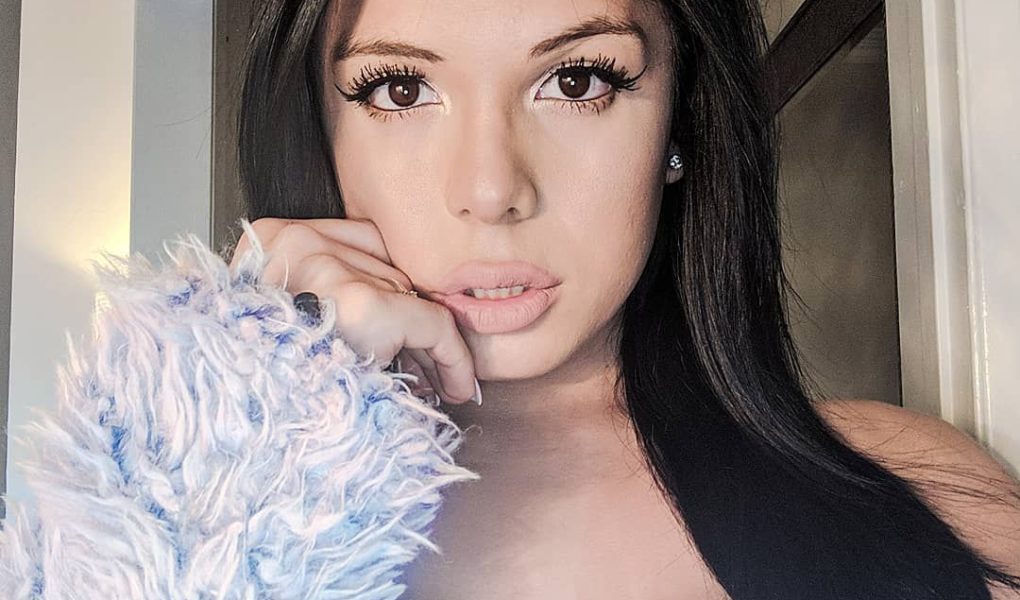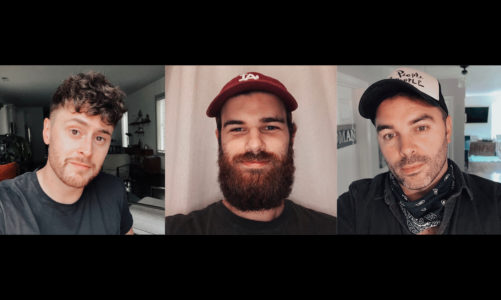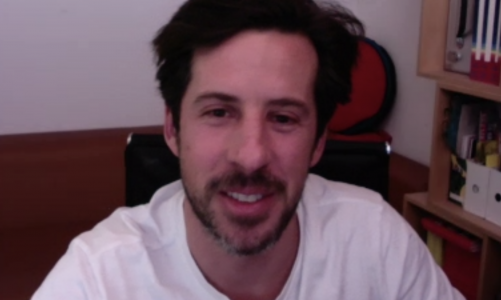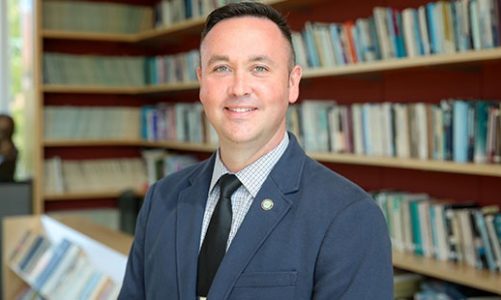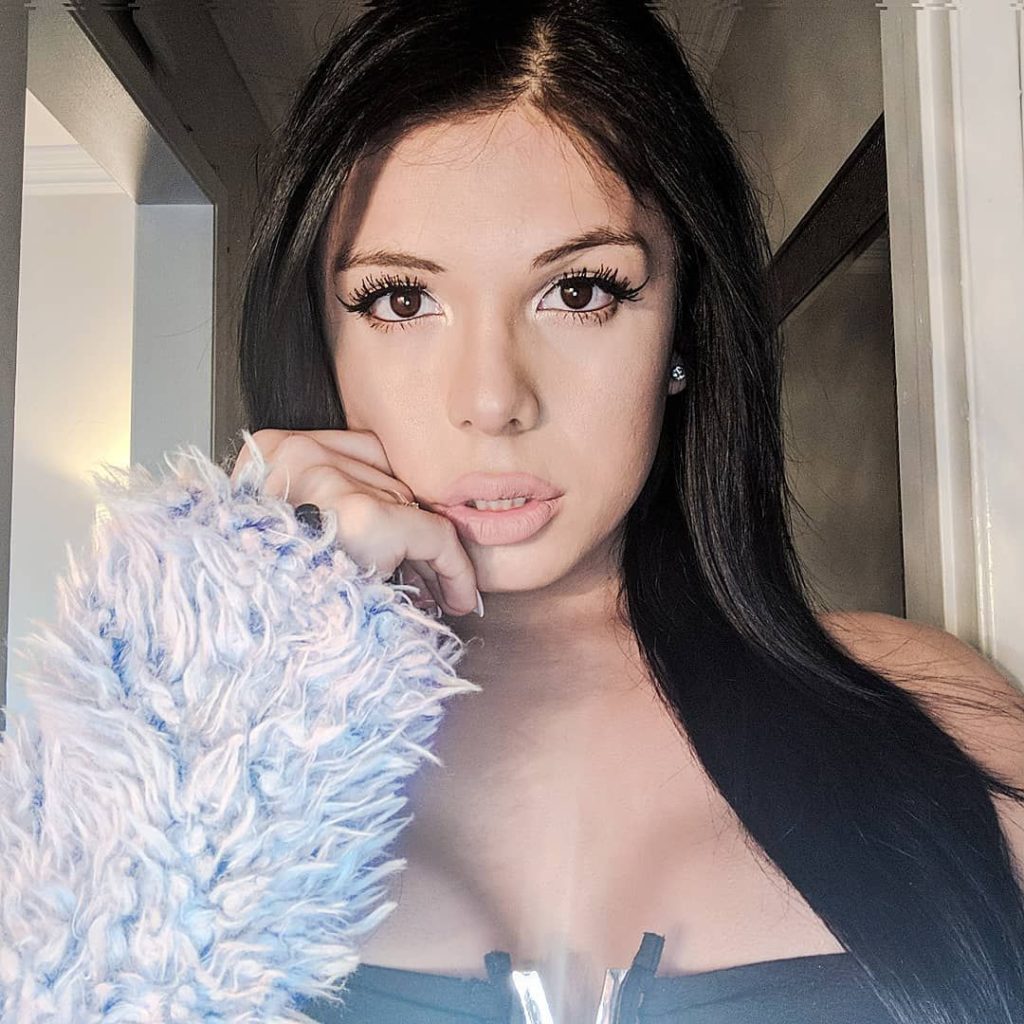
Blaire White is an American YouTuber, social media influencer and political commentator who has a combined following of over 1.8 million across her social media accounts. White is no stranger to controversy: a transgender woman herself, she is a vocal critic of left-wing gender ideology, feminism, and various social justice movements. In the past, she has debated conservatives and liberals alike, including commentator Ben Shapiro, BLEXIT founder Candace Owens, and ContraPoints host Natalie Wynn about issues such as the use gender pronouns, transgender individuals in the military, and identity politics. She has appeared on the political talk show The Rubin Report several times and is a contributor to the conservative online news magazine The Post Millennial.
Danielle Springer: What led to your unique stance on trangender issues and gender issues in general? Did you ever have ideas that were farther left?
Blaire White: My shift in worldview was really when I became an adult and began my transition. I felt a different sense of personal responsibility, a need to take control of my life. To me, those virtues of manifesting my own destiny were more present on the right. So, right-wing ideology has always naturally attracted me. I’m definitely center-right now. On my college campus I was going to trans-meetings like the Stonewall Society, and I just didn’t agree with some of their talking points. I felt, in some ways, they invalidated me. For example, there is a very common talking point that gender doesn’t actually exist. I’ve always been very attached to gender – whether it was being confused about why I felt the way I felt during my childhood or transitioning in my adulthood – so being told gender doesn’t exist was kind of the first thing that caused me to forge my own path.
Ironically, you’ve said most of your critics are trans rights activists. Why do you think that is?
It can be hard to see someone within your own small, insular, community being successful and saying what they feel, because a lot of us are struggling in our lives, so we feel weak. So seeing other trans people being empowered can be somewhat threatening. That’s not to say that trans people don’t have genuine disagreements with me; of course they do. I think the criticisms often come from an okay place, because I talk about very contentious issues. But there is often a difference between criticism and hate. I get a lot of both, and I’m transparent about them both. 99% of the hate I get is from leftists and those are the people that definitely parade as, “my protector,” but they’re the ones who are doxxing me, and they’re the ones saying all kinds of crazy stuff.
My methods of striving for acceptance and normalization of trans people are different than most trans activists, but I personally believe that my methods are very successful. I have an incredibly high rate of viewers who will tell me, “I used to hate trans people and misunderstand them, and I’ve completely done away with [that] upon finding your content.” Luckily, I’ve actually been able to shape a lot of the discourse around trans people all over the world. I’ve seen the ways in which trans discourse has changed as a result of me being present online. I get messages saying that I changed people’s lives. It’s very rewarding.
You’re often left out of mainstream gender discourse, with people not only diminishing your personal channel’s content, but attempting to ban you from public trans rights events. Why do you think you’re still excluded from these conversations?
Obviously, the more progressive lens in which people view trans issues is the popular and dominant one. A lot of people just want to voice one narrative because they are not ready for the more messy conversations that would ensue if you actually put someone on the panel who might disagree. I don’t hold any grudge that I’m not invited to more progressive events. It’s easier to just have panels with speakers who completely agree. But it’s unfortunate, because that’s not representative of real life or of the trans community.
You’ve dedicated a lot of time to exposing alleged sexual predators, like Jessica Yaniv, a Canadian transgender woman accused of sexual harassment. What about this issue compels you so much?
Recently I have shifted the partial focus of my channel towards predators, which opened up a lot of crazy doors. It’s a dark topic with a lot of bad characters, and Jessica Yaniv is one of them. She was a perfect fit because she is trans and also a predator, so that was the entryway to realize I can talk about all of these things [simultaneously]. I’m always thinking of ways in which my platform can expand to do good beyond trans issues. I was a victim of rape at age 19, so if I were to really analyze my choices for doing predator content, it probably stems from never seeking justice for my own situation.
What bothers you the most in the conversation about gender?
The science-denying. I don’t like being expected to suspend my belief of how the real world works to accommodate trans discourse. I find it really damaging that the idea of biological sex as a social construct is taken as some sort of universal truth all of a sudden, when it wasn’t even taken as truth before, I don’t know, 2015. We’re supposed to believe activists that tell us that it’s a construct for us, but you can observe differences between males and females for every other species on the planet. There’s blatant erosion of everything we know to be true about biological sex – saying that it doesn’t exist or that trans women are exactly the same as biological women. I’m not the same, and I should be okay with that, and you should be okay with that. Why do I have to be the exact same as biological women? If that were the case, I wouldn’t have had to transition. Just be truthful. A lot of times, these conversations just don’t involve a lot of truth.
When, specifically, does the gender ideology go too far for you?
When it begins to harm people. When it pushes the narrative that there are never any negative circumstances in regard to young children transitioning. When it says that trans women must be allowed to compete in women’s sports or that people are not allowed to deny trans people in dating or sexual advances. That’s when I say, “Okay. We can have our space, we can have our seat at the table, and we can have our rights, but when we begin impeding other people’s rights or you begin putting people at risk with your ideology, it’s bad.”
How do we distinguish between children who might just not conform to strict gender norms, such as girls who are tomboys, versus a child that may genuinely benefit from transitioning?
Before I decided to transition, I tried to picture myself as an old person: “Do I see myself as a man or a woman?” That really helped me be able to determine if this is something that I want now or if it’s something that I really think that would benefit me as a life choice. Because being trans isn’t a choice, but transitioning definitely is. It’s very important to think long-term, and if you’re like me, and you have these unwavering feelings from a young age, and you know yourself, then you’ll know it’s the right decision. But the unfortunate thing is that when you’re very young, you don’t really know yourself.
I know people who have transitioned at twelve or thirteen years old, that are now thirty, and are completely happy. But that doesn’t negate the fact that there are people who end up ruining their lives, who end up undergoing permanent surgeries that they can never reverse. It’s actually astounding how many people reach out to me saying, “I did this, and I regret it,” or, “I’m so glad my parents didn’t let me transition when I was twelve, because I was clearly just a tomboy.” I think we have to allow grey area in these topics. We have to allow for the fact that not all children who express gender noncomformity are transgender and should be permanently altering their bodies.
Unfortunately, there is a really big push from trans activists and some of the trans community to completely demedicalize the concept of transgenderism. Now we have, in most states, informed consent, in which you don’t need to undergo a psychological evaluation to undergo hormone therapy or trans-specific surgeries. I think that is a very dangerous thing. Often, when we talk about trans issues, we get caught up in the cosmetics of it, but you may also be removing a child’s ability to have children. There are trans people who transition young who don’t regret it, but I don’t think anyone was ready to have a conversation internally [about having kids] when they were young.
So how should a well-meaning parent, who genuinely wants the best for their child, approach the issue of children medically transitioning?
I often say to allow your child to explore their gender socially like through clothes, through makeup, or lack thereof. Allow them to really have some lived experience as that gender if they want to do that, but hold off on permanent changes for as long as possible. Some doctors will say to parents, “Your child will kill themselves if they don’t transition.” They’re being emotionally blackmailed by activists. While it’s true that suicide rates are high for children who experience gender dysphoria, I don’t think that’s a reason to allow your child to medically transition yet. I think that there are some things you can do before getting to that point.
You mentioned gender dysphoria. Can you explain what it is and how it relates to transgenderism?
It’s very taboo to call gender dysphoria a mental disorder or illness, but it’s a condition that transgender people feel, which is a misalignment of their body and their brain. For me, it was a persistent, unwavering, very powerful and detrimental feeling I had since I was about five years old. My earliest memories in life are that of knowing inherently that I could not meet the expectations of being a boy. It’s just unfortunate that a lot of activists are now trying to promote the idea that you don’t need gender dysphoria to be trans anymore and that there are no prerequisites to being a trans person. I think that in the next 10 to 20 years, you’re going to see a lot of people coming out with detransition stories, because they are getting caught up in this.
So what’s the ideal treatment or “cure” for gender dysphoria?
There is not a cure for gender dysphoria other than transitioning, unfortunately. This is very controversial to say in my community, but I don’t think transitioning should be necessarily the very first choice. Go to therapy, talk it out. Everyone makes their own choice. You just have to figure out if you’re able to cope with it, and if you are, I would say then don’t transition. Transitioning may make your life harder. It’s not a path that everyone finds success with.
The argument that I often see in support of demedicalizing trans issues is when one says “trans people have gender dysphoria,” they’re saying that the trans person is mentally ill. How would you respond to that?
I would say the answer is to destigmatize mental illness. I don’t personally find any shame in talking about the fact that I suffered with debilitating gender dysphoria my entire life, and that, in a world where we weren’t concerned with being [politically correct], it would be a mental illness. I think that anything that is persistent, unwavering, and damages your life and your ability to move through the world is an illness. It’s one of those examples of trans activists really shooting themselves in the foot. If we classified it as a medical condition, we’d be able to have insurance covering these things, and we’d be treated as people who need help. Instead, it’s just become this social issue that not everyone can get down with. If it were medicalized, we’d actually be able to have some compassion for people.
You’ve said that “depoliticizing trans people” is a priority for you. What do you mean by this?
It shouldn’t be such a hyper-partisan issue. I don’t like when I see the right trying to demonize trans people as somehow a “threat” because of public bathrooms; the statistics just don’t line up with that. You have the freak cases or the Jessica Yanivs, but by and large, there are just no stats about actual trans people being rapists or sexual predators. And on the left, I don’t like this rewording of science and the pushing of an agenda. So I think that, even setting aside trans people, if we all just saw other groups of people as people, it’d be better for everyone. When we view trans people as people and not progressive talking heads, that’s when we make some progress. But unfortunately, a lot of trans people are hellbent on being progressive talking heads, so it’s frustrating. It sucks that you have these two sides that will not give an inch because regular trans people are left in the middle to suffer.
Some critics say that “you’re not really trans,” and it seems similar to the criticism that Black conservatives get of being “Uncle Toms.” What do you think motivates these types of insults?
It’s interesting. Everyone who says that I try to invalidate other trans people are the ones that will say that I’m not trans or that I’m destined to detransition in two years. It goes back to not seeing people as people. I do see it a lot with Black conservatives, which is a little bit confusing, because historically, Black people have actually been quite conservative in this country, quite religious, and quite family-values-oriented. Almost every trans person I meet in real life also has somewhat of a conservative mindset. That might be a shocking thing to hear for some people, but when you really get out of the vicious online discourse, and you meet real trans people, many of them agree with me wholeheartedly. That is why I’ve been so consistent in fighting to stay on my platform. Because the stuff you see online simply is not consistent with real trans people in real life. Most trans people I know are more socially conservative, because they transitioned to be left alone. They didn’t transition to be freakshows, for lack of a better word.
Some academic institutions have implemented trigger warnings, safe spaces and other “emotional safety measures” for minorities. How do you think that affects the trans community? Is it harming or helping?
I’ve never understood the idea of safe spaces and trigger warnings for trans people, because I feel like we’re extremely strong. We overcome things that other people would crumble over. Like overcoming gender dysphoria, nonacceptance from family, surgery, and changing my life. I am a stronger person because of it. So the idea that I should be coddled and that I can’t handle basic truths about life is just so insulting. A lot of trans people are thin-skinned, but I’ve never understood that. It’s like, “You have a long road ahead of you. You need to strengthen up a little bit.” I also think it creates an overall culture of people walking on eggshells, fearful of expressing themselves and asking questions. That’s unhealthy and only does a disservice to trans people, and all people.
Can you explain the tension between binary trans people and nonbinary people?
The desires and needs of binary trans people are completely different from those of nonbinary people. For example, nonbinary people and trans activists are trying to normalize the idea of introducing yourself with your pronouns. That may make all the sense in the world and be very validating for nonbinary people. But for me, I would be highly embarrassed to do that. It would actually probably instantly out me as transgender and potentially put me in an unsafe predicament with people I don’t want to know I’m transgender.
So that’s the internal battle between nonbinary and trans people, and that’s something I think people outside of the community don’t get. Binary trans people often get painted with the brushes of the craziest nonbinary people, but we’re fighting this battle, too.
There seems to be hostility between cisgender feminist women who get called TERFs (trans exclusionary radical feminists) and trans women. How do you feel about the relationship between these communities?
I think that it’s kind of a no-brainer why some women in the feminist movement see priorities as different for them and the trans movement, in the same way that I saw the differences between nonbinary and trans people. There just are differences, and in parts of the trans community, there’s a refusal to admit those differences. So you see things like the push for midwives to call pregnant people “birthing people” or “chestfeeders.” What are you doing, if not just pissing off women? Why do you have to invalidate women to further the needs of the trans community? I think that is the number one roadblock when it comes to trans issues. You cannot position yourself as being adversarial to women and expect to have any sort of social cohesion here. A healthy society wants to protect women. I’m not a feminist, but I definitely see where some feminists come from when they find conflict with the trans community. As far as unity between feminists and trans people, I guess that would be important.
What are the issues that you believe trans individuals genuinely face?
Discrimination in housing is often a problem for trans people. I know trans people that get denied housing. This one’s difficult: employment discrimination. It’s one of those issues where, unfortunately, the trans movement has caused trans people to be liabilities in the workplace. When you start threatening fines for misgendering and start creating this atmosphere of walking on eggshells around a trans person, who’s gonna want to hire a trans person? So, I think that that is an issue that both sides need to fix. Trans people need to work on their reputation of being thin-skinned, and conservatives need to not shy away from hiring someone who may be qualified just because they’re trans.
You’ve talked about how the gay rights movements have been so successful because of that emphasis on common humanity. How does the transgender rights movement differ?
When the gay community achieved marriage equality and adoption rights, it was because their argument was about a common humanity. It was: “Listen, we know we’re different, we know we can’t give birth to a child naturally, but we can provide a safe home. So let us adopt.” It was just about them saying, “Please see us as people.” Unfortunately, it’s almost like a lot of trans activists don’t want to be seen as people; they want to be seen as special. Trans people don’t want to be included in the conversation; often, they want to have a whole new conversation, get mad at you that you’re not part of that conversation, but also tell you that you have to be part of it.
How would you like to see trans people represented in mainstream media?
I would love to see more binary trans people who are represented. There has been a big push to completely erase them and to just focus on gender fluid, nonbinary, “My hair is purple so I’m a different gender,” [people]; I don’t like that. I think that’s clickbait. There was a very short “golden period” of trans representation in the mainstream media from 2013 to 2015 where there were trans people like Laverne Cox, Carmen Carrera, and Janet Mock all of a sudden. I didn’t agree with them on everything – they were quite farther left than I am, but they were arguing on behalf of binary trans people and transitioning in a way that was really translating to people.
What can well-intentioned people do to help the trans community?
Treat people as people; don’t treat trans people as these special entities. Don’t have built-in expectations and biases against people. That’s hard, because we’re naturally built to have preconceived notions when someone of a certain identity walks in the room. And if you’re on the right, watch my channel. Because there is a very high success rate of people on the right watching and then changing their feelings about things. And I think that is because people on the right do not often see portrayals of trans people as anything other than extremist progressives. Most people have never met a trans person, at least to their knowledge. So, their only perception of trans people is extremists in the media and “everyone can bleed,” bloody crotches, and pregnant men. So, seek out trans people who don’t fit that [stereotype]. Search for commonalities with each other.
What’s something that people misunderstand about you?
People think that I have some sort of diabolical intentions with my channel. I see a lot of people jumping straight to the worst possible conclusion about me. Some people might not agree with my method, but I’m actually saying what I’m saying to help people.
*This interview has been edited for length and clarity.

